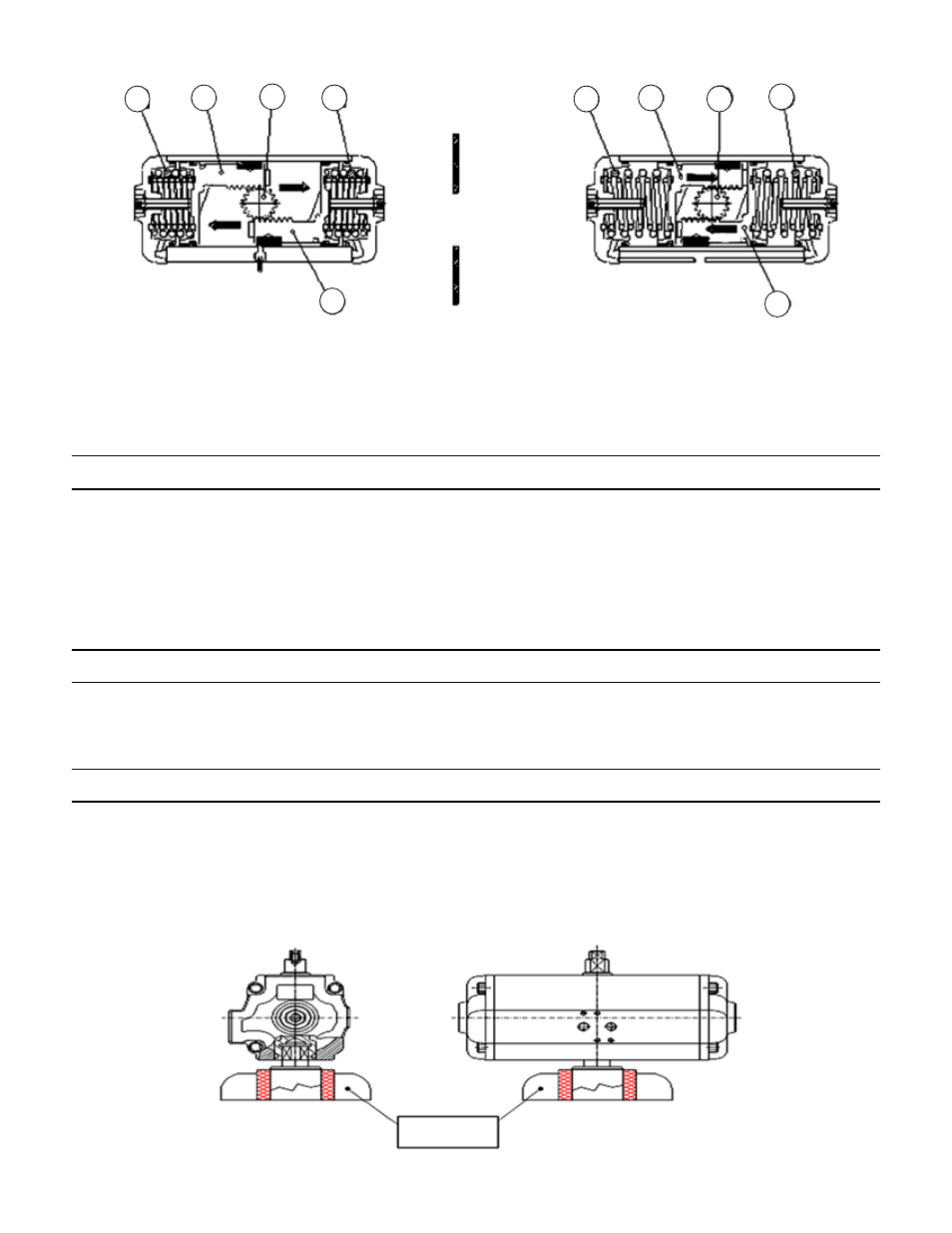Storage, Maintenance, Disassembly – Marwin Valve UT Series Pneumatic Actuators User Manual
Page 2

Storage
For applications where the actuator is not put into immediate service, it is recommended that the actuator be kept in
a clean and dry location with ample protection from the environment. For unmounted actuators, the original packing
box helps in optimizing the storage.
For a long storage period, we recommend periodically pressurizing the chambers to completely cycle the actuator.
The actuators have two air ports, which should be plugged during storage to avoid any intrusion.
Maintenance
The lubrication used during the assembly of the actuator, and the self-lubricating material used in the guides, gives
a life of one million cycles for normal working conditions. When replacing worn seals, it is recommended that the
guides be replaced as well to ensure best actuator performance.
Disassembly
1.
Disconnect all pneumatic and electrical supplies from the actuator.
2.
Remove any accessory from the actuator that could be damaged.
3.
Remove actuator from valve (noting the valve position, actuator position, and actuator orientation on the valve
for correct reinstallation).
4.
Place the actuator on a support with the same male drive of the pinion female connection, in order to easily
execute the following steps:
-2-
Spring Return
CLOSED
OPEN
TOP
VIEW
IN
AIR
P2
2
2
7
7
7
7
M
M
M
M
When the pistons (7) are next to the pinion (2) (springs
(M) uncompressed), pressurizing the right or top air port
(P2) fills the internal chamber. The action of the pressure
on the surface of the pistons creates a force (F1) that
pushes them toward the end caps, generating a torque
with COUNTERCLOCKWISE ROTATION.
When the pistons (7) are next to the end caps (springs
(M) compressed), de-pressurizing air port (P2), allows
the springs to uncompress. The spring force (Fm) pushes
the pistons toward the pinion, generating a torque with
CLOCKWISE ROTATION.
SUPPORT